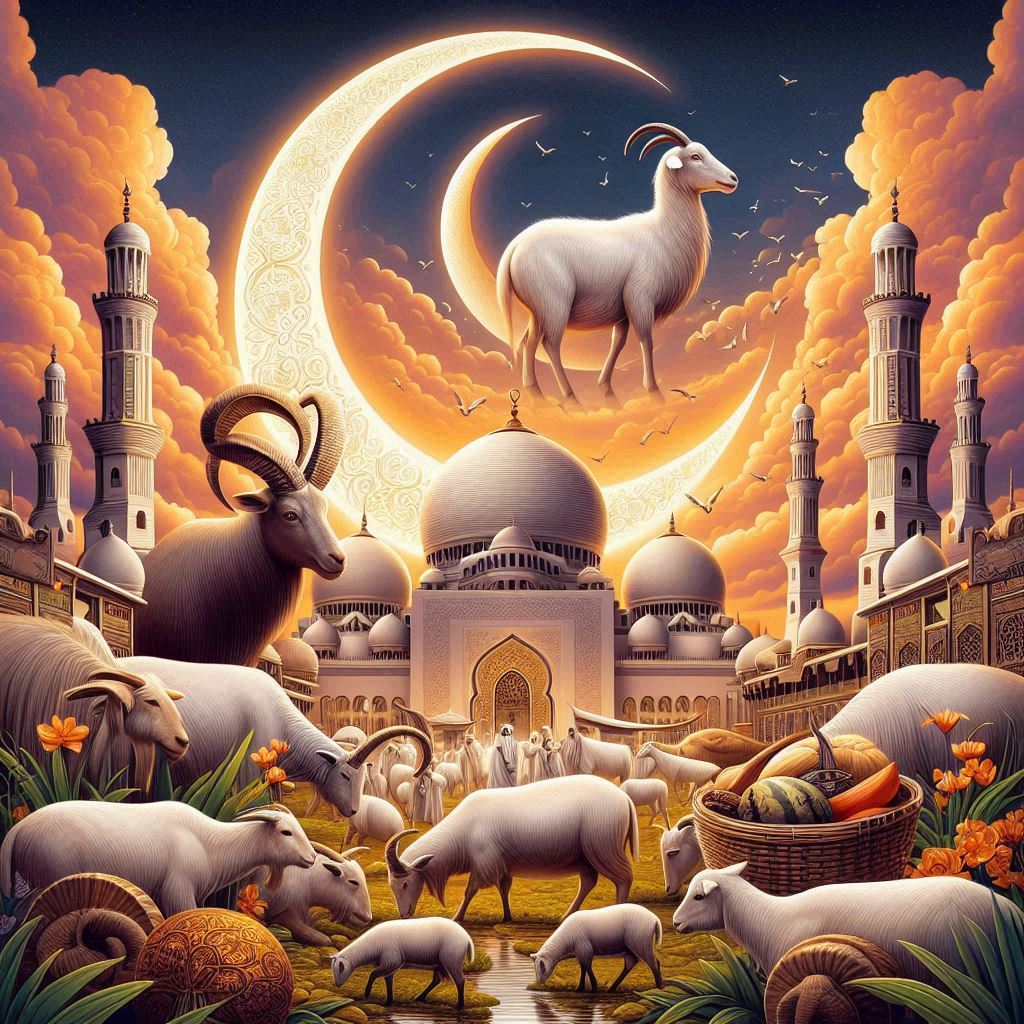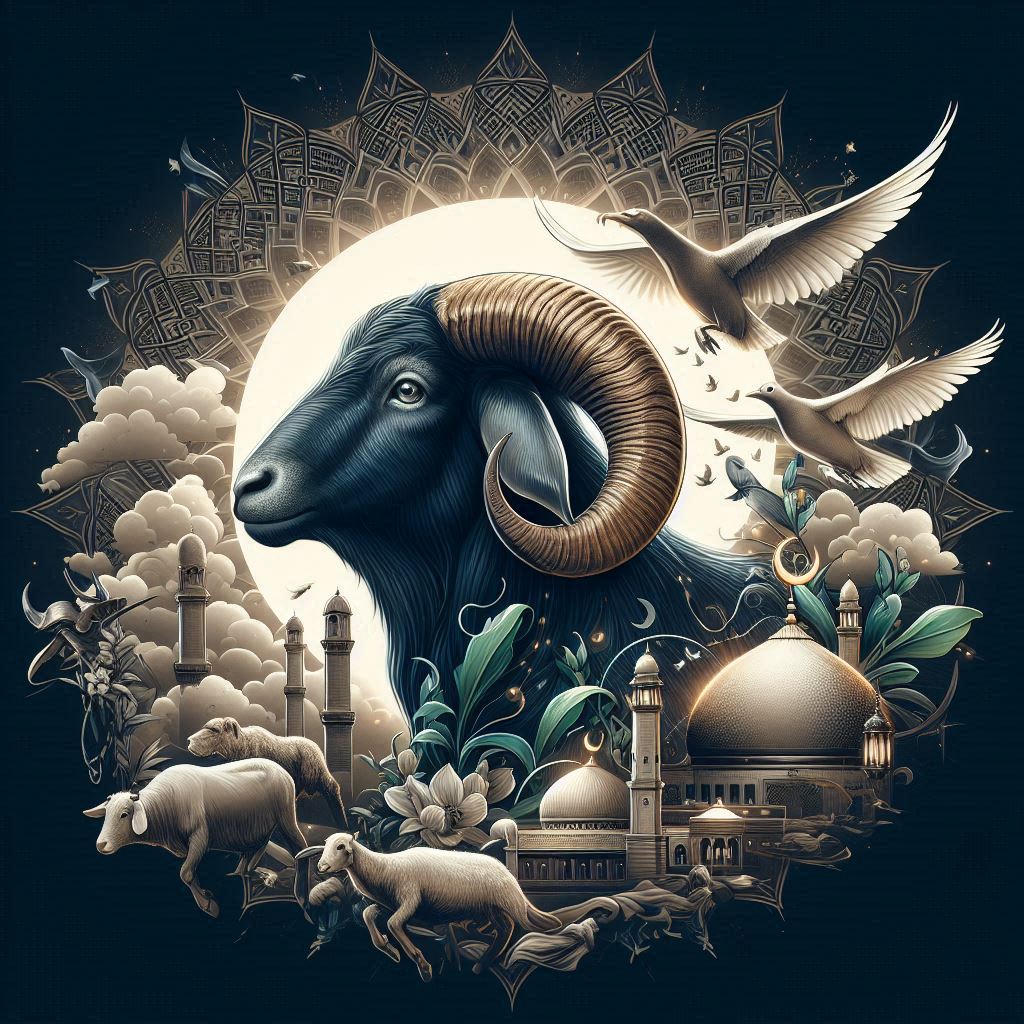The “Festival of Sacrifice,” or Eid al-Adha , is a significant Islamic festival observed by millions of Muslims worldwide. This significant occasion honors Prophet Abraham (Abraham) for his readiness to offer his son as a sacrifice in submission to God. Eid al-Adha is observed with ceremonial animal sacrifice, feasting, and special prayers. Let’s explore the deep cultural importance, rich traditions, and customs of Eid al-Adha.
The Importance of Eid al Adha in History and Religion
The legend of Prophet Ibrahim and his son Isma’il (Ishmael) is the origin of Eid al-Adha. Islamic belief holds that in order to test Ibrahim’s faith, God asked him to sacrifice his beloved son. Just as Ibrahim was ready to fulfill the instruction, God prepared a substitute, a ram to be offered as a sacrifice. We celebrate this obedience and God’s benevolence on a yearly basis on Eid al-Adha.
The tale of Eid al-Adha serves as a reminder of the values of compassion, sacrifice, and obedience in addition to being a monument to religion. This incident is mentioned in the Qur’an to highlight the significance of doing what God commands. Eid al-Adha is a time for Muslims to ponder these principles and to strengthen their faith.
Customs and Cultural Practices related to Eid
In the Muslim world, Eid al-Adha is observed with a great deal of fervor and a variety of customs. The festivities usually start with a special prayer called the “Eid Salah,” which is said in front of huge crowds in mosques or public spaces. An important part of Eid al-Adha is this prayer, which unites the community in devotion.
Following the prayer, there is an animal sacrifice ceremony known as Qurbani. To commemorate the ram that was slaughtered in lieu of Isma’il, Muslims who are able to do so sacrifice a sheep, goat, cow, or camel. Then, three portions of the animal’s flesh are set aside: one for the family, one for friends and family, and one for the underprivileged. This sharing gesture emphasizes the communal and giving ethos that is important to Eid al-Adha.

Customary Eid al Adha Foods and Feasts
In addition, Eid al-Adha is renowned for its extensive gastronomic customs. Families cook a range of festive meals, many of which include the sacrificed animal’s flesh. While popular foods differ by location, stews, biryanis, and kebabs are often served. Desserts and sweets play a significant role in the Eid al-Adha feast, with items like maamoul, halva, and baklava appearing on many tables.
Eid al-Adha meal preparation and sharing is more than simply a fun tradition; it’s a means of fostering community ties and expressing thanks. During these dinners, family and friends join together to celebrate the virtues of hospitality and camaraderie.
Eid al Adha in Various Cultural Contexts
The many ways that Muslims commemorate Eid al-Adha across the globe are a reflection of the diversity of Muslim cultures. For example, the celebration of “Idul Adha” in Indonesia consists of communal prayers and the giving of meat to the underprivileged. Turkey celebrates “Kurban Bayramı” with a four-day public holiday, during which many families go to see family members.
In nations in the Middle East, such as Saudi Arabia and Egypt, celebrations revolve upon grandiose feasts and group prayers. Vibrant marketplaces selling animals for sacrifice may be seen in South Asian nations like Pakistan and India, and the noises and scents of celebratory preparations fill the air.
Eid al Adha's Ethical and Animal Welfare Considerations
Important moral and animal welfare issues are brought up by the Eid al-Adha custom of animal sacrifice. The humane treatment of animals is highly valued in Islam, and certain protocols are observed to guarantee that the procedure is executed with empathy and decency. A healthy and well-treated animal is required for the sacrifice, which is carried out quickly to reduce suffering.
In the last several years, there has been a growing consciousness and discourse on the ecological consequences of extensive animal killing. In order to cut waste and promote resource efficiency, some communities are implementing more sustainable customs, such group sacrifices.
The Effects of Eid al Adha on the Economy
Eid al-Adha has a big economic effect, especially on the cattle sector. Farmers and businessmen benefit greatly from the booming market created by the need for sacrifice animals. As individuals get ready for and enjoy the holiday, this economic activity also affects the apparel, food, and travel industries.
Eid al-Adha boosts local economy by generating employment and promoting trade in several nations. It also emphasizes how crucial it is to make sure that ecological and ethical issues are taken into account in addition to financial gains.
Expert Graphic Designer | Social Media Marketing Strategist | Content Writer
Specialize in impactful visuals, strategic social media campaigns, and SEO-optimized content.





